Filter by

Freud's Dream: A Complete Interdisciplinary Science of Mind
"A Bradford book."OCLC-licensed vendor bibliographic record.
- Edition
- -
- ISBN/ISSN
- 9780262277211
- Collation
- 1 online resource (245 pages) :illustrations
- Series Title
- -
- Call Number
- -
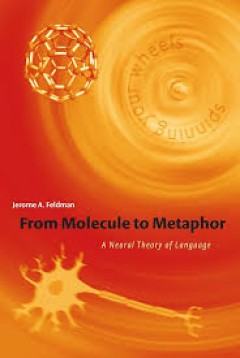
From molecule to metaphor: A Neural theory of language
"A Bradford book."In From Molecule to Metaphor, Jerome Feldman proposes a theory of language and thought that treats language not as an abstract symbol system but as a human biological ability that can be studied as a function of the brain, as vision and motor control are studied. This theory, he writes, is a "bridging theory" that works from extensive knowledge at two ends of a causal chain to…
- Edition
- -
- ISBN/ISSN
- 9780262272544
- Collation
- 1 online resource (xx, 357 pages) :illustrations
- Series Title
- -
- Call Number
- -

How the body shapes the way we think : a new view of intelligence
"A Bradford book."An exploration of embodied intelligence and its implications points toward a theory of intelligence in general; with case studies of intelligent systems in ubiquitous computing, business and management, human memory, and robotics.OCLC-licensed vendor bibliographic record.
- Edition
- -
- ISBN/ISSN
- 9780262281553
- Collation
- 1 online resource (xxiv, 394 pages) : illustrations
- Series Title
- -
- Call Number
- 001 PFE h
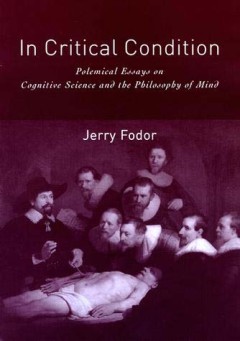
In critical condition : polemical essays on cognitive science and the philoso…
"A Bradford book."Doing philosophy, according to Jerry Fodor, is like piloting: The trick is to find an object of known position and locate yourself with respect to it. In this book, Fodor contrasts his views about the mind with those of a number of well-known philosophers and cognitive scientists, including John McDowell, Christopher Peacocke, Paul Churchland, Daniel Dennett, Paul Smolensky, a…
- Edition
- -
- ISBN/ISSN
- 0585078092
- Collation
- 1 online resource (x, 219 pages).
- Series Title
- Representation And Mind Series
- Call Number
- 100 FOD c

The new science of the mind :from extended mind to embodied phenomenology
An investigation into the conceptual foundations of a new way of thinking about the mind that does not locate all cognition "in the head." There is a new way of thinking about the mind that does not locate mental processes exclusively "in the head." Some think that this expanded conception of the mind will be the basis of a new science of the mind. In this book, leading philosopher Mark Rowl…
- Edition
- -
- ISBN/ISSN
- 9780262289733
- Collation
- 1 online resource (x, 249 pages)
- Series Title
- -
- Call Number
- -
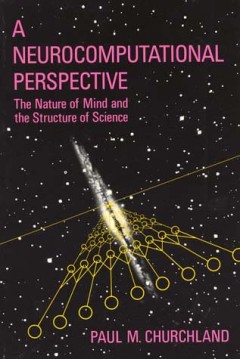
A neurocomputational perspective :the nature of mind and the structure of sci…
If we are to solve the central problems in the philosophy of science, Paul Churchland argues, we must draw heavily on the resources of the emerging sciences of the mind-brain. A Neurocomputationial Perspective illustrates the fertility of the concepts and data drawn from the study of the brain and of artificial networks that model the brain. These concepts bring unexpected coherence to scattere…
- Edition
- -
- ISBN/ISSN
- 9780262270328
- Collation
- 1 online resource (xvii, 321 pages) :illustrations
- Series Title
- -
- Call Number
- -
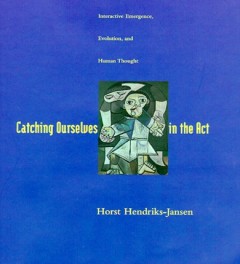
Catching Ourselves in the Act: Situated Activity, Interactive Emergence, Evol…
"A Bradford book."OCLC-licensed vendor bibliographic record. Catching Ourselves in the Act uses situated robotics, ethology, and developmental psychology to erect a new framework for explaining human behavior. Rejecting the cognitive science orthodoxy that formal task-descriptions and their implementation are fundamental to an explanation of mind, Horst Hendriks-Jansen argues for an alternative…
- Edition
- -
- ISBN/ISSN
- 9780262275262
- Collation
- 1 online resource (xii, 367 pages).
- Series Title
- -
- Call Number
- -
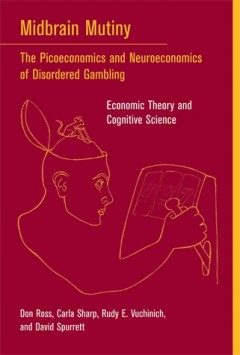
Midbrain mutiny : The Picoeconomics and Neuroeconomics of Disordered Gambling…
An analysis of how economic theories can be used to understand disordered and pathological gambling that calls on empirical evidence about behavior and the brain and argues that addictive gambling is the basic form of all addiction.
- Edition
- -
- ISBN/ISSN
- -
- Collation
- 1 online resource (x, 301 pages) : illustrations
- Series Title
- -
- Call Number
- -
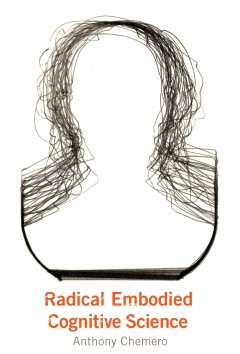
Radical embodied cognitive science
While philosophers of mind have been arguing over the status of mental representations in cognitive science, cognitive scientists have been quietly engaged in studying perception, action, and cognition without explaining them in terms of mental representation. In this book, Anthony Chemero describes this nonrepresentational approach (which he terms radical embodied cognitive science), puts it i…
- Edition
- -
- ISBN/ISSN
- 9780262258678
- Collation
- 1 online resource (xiv, 252 pages) :illustrations.
- Series Title
- -
- Call Number
- -
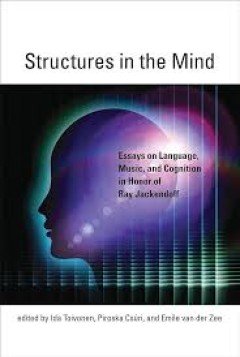
Structures in the Mind: Essays on Language, Music, and Cognition in Honor of …
The introduction includes appreciations of Ray Jackendoff by various authors.OCLC-licensed vendor bibliographic record.
- Edition
- -
- ISBN/ISSN
- 9780262331791
- Collation
- 1 online resource (xxxiv, 404 pages) :illustrations
- Series Title
- -
- Call Number
- -
 Computer Science, Information & General Works
Computer Science, Information & General Works  Philosophy & Psychology
Philosophy & Psychology  Religion
Religion  Social Sciences
Social Sciences  Language
Language  Pure Science
Pure Science  Applied Sciences
Applied Sciences  Art & Recreation
Art & Recreation  Literature
Literature  History & Geography
History & Geography